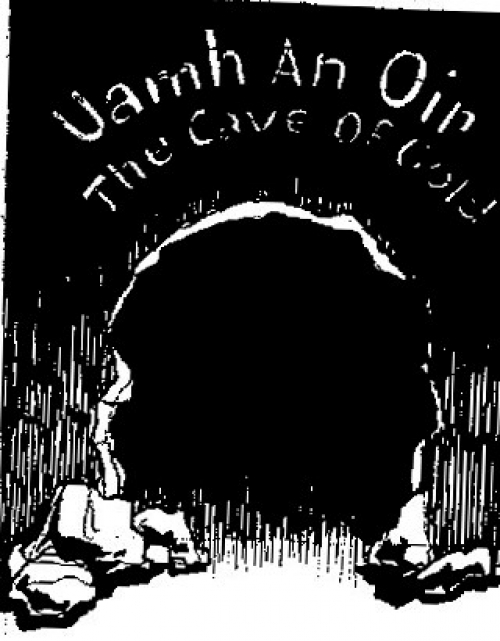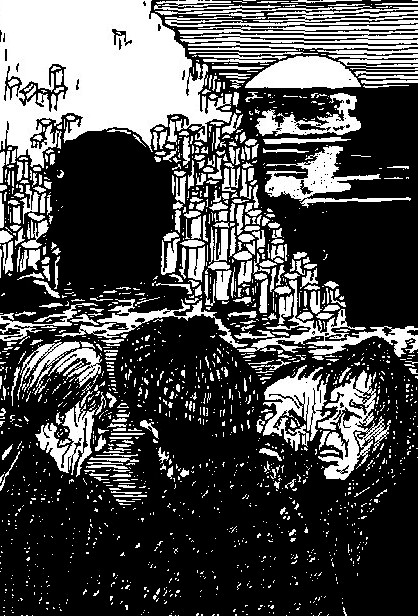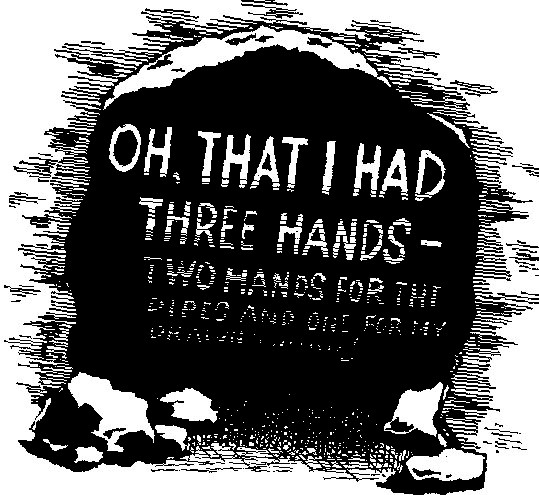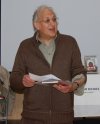The Cave of Gold

David Betteridge re-tells an old tale, inspired by John Berger, Timothy Neat, and Margaret Bennett, with drawings by Bob Starrett
The Cave of Gold
by David Betteridge
On 23rd February, 2017, in Edinburgh, an event was held by the Royal Scottish Academy, in commemoration of an honorary member who had died a few weeks earlier, on 2nd January, in Paris. That member was John Berger, the Marxist critic, writer, and artist, who was not only honorary, but honoured, and also greatly loved. You only need to read a few of the obituaries that were published at the time to get a feeling for the fact that here was a friend to many, a giver and receiver of goodwill, as well as an artist, critic, story-teller, essayist, poet, dramatist, film-maker, etc. of international reach.
Ali Smith’s obituary, written for “The Guardian” on 6th January, provides a good example. She concluded that, “A reader coming anywhere near his work encounters life-force, thought-force – and the force, too, of the love all through it.” Then there is Jacob Brogan’s obituary, written for “The New Yorker” on 9th January. “It was hope,” he wrote, “that allowed Berger to write so beautifully... Hope names a commitment to change the world.” And there is Yasmin Gunaratnam’s obituary, written for “Red Pepper”, on 19th January. “Immersed in his story-telling and stories about him,” she explained, “I saw up-close what he meant by a story-teller’s hospitality, how language and writing can offer a sense of community.”
You will also find voices raised in hostility to John Berger’s memory – as in Michael Henderson’s obituary, for example, in “The Spectator” on 4th January – because, being anti-capitalist and anti-imperialist and fiercely combative all his life, in fact being “Permanent Red”, to quote the title of an early collection of his essays, Berger quite properly made enemies as well as friends.
The Edinburgh event served as the best of obituaries, a multi-disciplinary and multi-genre affair, attended by a multiplicity of friends, including some who had never met the man, or corresponded directly with him, but who felt they knew him through the comradeship of his works, as Gunaratnam described.
One contributor to the event was Timothy Neat (artist, photographer, biographer, poet, historian, teacher, and expert in mushrooms and honey), who screened a film that he had made in 1989, “Play Me Something”. In this film, John Berger plays a leading role, that of a story-telling Stranger. The story that he tells is one of his own, the last in his “Once in Europa” collection, about a chance meeting of two lovers-to-be at a Festa de l’Unita on the Venetian island of Giudecca, one of the couple being a cattle farmer from inland, the other a shopworker from the city.
As well as being narrated in Berger’s voice-over, this story is partly dramatised in the film, and is embedded in a second film-drama about strangers meeting on the Hebridean island of Barra. As they sit waiting at the tiny airport for a delayed flight to Glasgow, they get drawn into the Stranger’s story-telling, and, in the process discover unexpected affinities. This latter drama, the Barra one, is acted by a motley selection of players, including the cultural earthquake, Hamish Henderson, and the great folklorist and singer and teacher and publisher, Margaret Bennett. She rounds off the film with a singing of the magnificent Gaelic song, “Uamh an Oir” (“The Cave of Gold”).
At our event on 23rd February, again Margaret Bennett sang this song, and explained to us its significance in Gaelic culture, conveying as it does truths about gifts and debts, beauty and horror, tradition and hope, all in a few minutes of compressed beauty.
What, you may wonder, has such an ancient song, from Scotland’s cold Atlantic seaboard, got to do with Berger’s modern story about a workers’ rally on a warm island in a Mediterranean lagoon? Is it not a strange film that sets out to make a unity of such opposites, including such disparate characters? The answer lies in the relevance of the story to our political imaginations. Neat’s film and Berger’s story inside it express an age-old longing for a future that transcends the past, and gives us a pre-echo of dreams come true, even when we know such a thing will be difficult to achieve. “Play Me Something” celebrates love, hope, and the need to change the world politically to achieve a fully human community : the very values highlighted in the Berger obituaries quoted above.
Berger’s friend and mentor, the Marxist philosopher Ernst Fischer, made a convincing case for such “heart of the heartless world” creations as “Play Me Something”. He saw them as a necessary complement to cultural creations of the “tell it like it is” sort. He argued for a both-and culture, without which we cannot see the world, and time, and ourselves as we really are, in the round:
... the function of art is to re-create as every individual’s experience the fullness of all that he is not, the fullness of humanity at large. And it is the magic of art that, by this process of re-creation, it shows that reality can be transformed, mastered, turned into play.
Being a poet as well as a philosopher, Fischer underscored his case in verse, in an elegy:
Deep in the dreams of the world’s morning
may the future’s face be mirrored,
and may legend become the goal
of a mature people...
(See Fischer’s “The Necessity of Art: A Marxist Approach”, translated by Anna Bostock, 1963, slightly edited above.)
With these ideas buzzing in my head, I decided to delve into the history of the song that Margaret Bennett sang. There I discovered a Gaelic ur-story, of deep resonance, from which the “Uamh an Oir” song sprang, a story which I already knew (in part) under the title of “The Silver Chanter”, but which I had not realised was kith and kin with the song. It is one of the great stories of the world, from the same deep source as Orpheus.
Inspired by its magic, I decided to try my hand at re-telling it. Here is that re-telling:-
“WE HAVE WORDS...”
We have words; we have tunes. Having them, we have wings. We can be eagles, or wrens, or swallows, or snow geese, or golden orioles, or any kind of bird we like. Fly with me now. We have a cloudless sky, or can imagine one. Look, below us, there! lying off Scotland’s Atlantic coast, do you see a mountainous island shaped like a riding-boot that has come apart at the top? Zoom in close now! Do you see a high cliff facing West, and at its foot the entrance to a sea-cave? The cave is called Uamh an Oir, the Cave of Gold.

I can tell you four things about this cave. One: it is very deep. Some say it extends as far as Fairyland; others say it extends as far as Hell. Two: somewhere in the cave there is a hoard of gold; or maybe it is the glow of the setting sun falling on the rocks at the cave’s entrance that makes it seem a Cave of Gold. Three: the cave is guarded by a ferocious Green Dog. It hides in the dark, always ready to kill. Four: no-one who has gone into the cave has ever come out.
One day, centuries ago, a piper stood on the cliff-top, in a grassy hollow, out of the wind. He was a tall young man, as strong as a bull leaping. At his feet lay a little grey dog, his constant companion. The young man’s pipes were in his hands, but he was not playing. He was groaning and sighing, despairing of ever mastering the instrument. How he longed to play the music that was in his heart and head, but not yet in his fingers!
A woman appeared at his side, so quickly he didn’t see her coming. “I have watched you,” she said, “over many days and many years. I have seen, and heard, your devotion to the pipes. You deserve to succeed; and you deserve to be helped.”
She was slender, like a birch tree. She wore a velvet cloak the colour of moss. She had bare feet. The young man realised that this woman speaking to him was one of the Fairy Folk.
“Answer me this question,” said the fairy woman. “Think hard: would you rather be a famous piper, with wealth and honours, but without much skill; or would you rather be a skilful player, the world’s best, but without fame?”
The young man’s answer came swift and sure: “I would rather be skilful,” he said.
“In that case,” said the fairy, “you will be rewarded not only with skill, but also with fame. Your answer proves that you are worthy of both.”
The fairy then pulled a strand of hair from her head, and took the young man’s pipes from his hands into her own. She wrapped the strand of hair round and round the pipes’ chanter, tying the circlet with a tight knot.
“As long as that hair remains in place on the chanter,” she said, “your playing will have in it all the beauty that your heart and head long for; but there is one condition that you must accept: a year and a day from now you must stand before me, in Fairyland, which you will enter through the Cave of Gold, and there you must play for me.”
The young man accepted the condition. Then, as quickly as the fairy had appeared, she disappeared.
For the next year and a day, the young man travelled among his clans-people. He travelled far and near, high and low, playing for them, his little grey dog always with him. Like spring rain and summer sun, the magic of his music refreshed all who heard it. They were happy as never before. They felt vigour and health rise up in them. They made peace with their neighbours, wherever there was conflict. They saw their cattle and their crops grow fat. It was a golden age, still remembered, still spoken of; and the echo of the young man’s playing is still heard in the best of today’s piping.
On the 366th day, the time came for the young man to keep his promise. As the sun began to set over the sea, he went down from the cliff-top by way of a zig-zag path, down to the Cave of Gold, his dog trotting after him.

A great number of his clans-people went with him, to wish him well. They were afraid for him, knowing that the cave was a great swallower of lives; but “No,” the young man reassured them, “I will be back soon, believe me. The power of my music will tame the Green Dog, and any other beast or fairy or person who might wish me harm.”
The piper went into the cave, his dog too. All the while, the piper played; and, as he played, his clans-people plotted his progress, step by step, even after he had disappeared into the dark. You see, there is a kind of speech woven into pipe music. If you listen with understanding, the pattern of the music’s notes and grace-notes speaks to you, and you know all that the piper intends you to know.
After a few minutes, the piper sent this coded message: I’ll be back with you, out of this cave, with a tale to tell, maybe good news. I’ll be back in less time than it takes a singer to start and finish her song.
On he went, further and deeper. The sound of his playing grew fainter. Then he sent this second message: I’ll be back with you, out of this cave, in less time than it takes a calf to grow to a heifer, and give birth to her own calf.
On and on he went, towards his meeting with the fairy woman, until the sound of his playing was so faint it could hardly be heard. Then he sent this third message: I’ll be back with you, out of this cave, in no less time than it takes an infant boy at the breast to train as a warrior, and become the chieftain of his clan.

It was nearly nightfall now. The setting sun showed only its topmost rim over the sea’s horizon. Its golden glow on the rocks at the cave’s mouth was darkening to grey.
Suddenly, there was the sound of a scrabbling of claws on these rocks, and the piper’s dog hurtled out of the cave, its eyes wide with a great fear. All of its grey hairs had been shed. Naked, it trembled in the gloom.
The clans-people standing there strained to hear what next the piper might communicate.
Oh, that I had three hands came the young man’s utterance, only just audible, from far underground, maybe from Fairyland, maybe from Hell. Oh, that I had three hands - two hands for the pipes and one for my drawn sword!
After that, there was only silence.

******************
To hear Margaret Bennett’s beautiful and compelling singing for yourself, see here.....
......Or get a copy of the CD produced by her son Martyn in 2002, “Glen Lyon”. It is a notable recording, full of imaginative musical effects and sound effects, and includes “The Cave of Gold”, sung by Margaret Bennett, as one of its tracks.
I started with John Berger. I want to round off with a poem inspired by remarks of his about the power of song, remarks contained in a late compilation of his writings, “Confabulations”. He wrote: “A song narrates a past experience… it fills the present… it leans forward…” None better than “Uamh an Oir”.
Songlines
by David Betteridge
Imagine a song so crammed with gold
it rings like a giant gong
or the Big Bang
conveying memories and desires,
facts and dreams,
traversing time.
As one voice in tradition’s relay dies,
another joins, keeping the beat,
keeping the tune,
chasing forever each next year’s Spring,
each next sunrise.
Imagine!
Sing!
Our song bestows on future folk
the world’s past,
for the world’s gain.


David Betteridge
David Betteridge is the author of a collection of poems celebrating Glasgow and its radical traditions, 'Granny Albyn's Complaint', published by Smokestack Books in 2008. He is also the editor of a compilation of poems, songs, prose memoirs, photographs and cartoons celebrating the 1971-2 UCS work-in on Clydeside. This book, called 'A Rose Loupt Oot', was published by Smokestack Books in 2011.